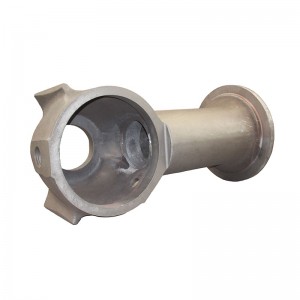- Afrikaans
- Albanian
- Amharic
- Arabic
- Armenian
- Azerbaijani
- Basque
- Belarusian
- Bengali
- Bosnian
- Bulgarian
- Catalan
- Cebuano
- China
- China (Taiwan)
- Corsican
- Croatian
- Czech
- Danish
- Dutch
- English
- Esperanto
- Estonian
- Finnish
- French
- Frisian
- Galician
- Georgian
- German
- Greek
- Gujarati
- Haitian Creole
- hausa
- hawaiian
- Hebrew
- Hindi
- Miao
- Hungarian
- Icelandic
- igbo
- Indonesian
- irish
- Italian
- Japanese
- Javanese
- Kannada
- kazakh
- Khmer
- Rwandese
- Korean
- Kurdish
- Kyrgyz
- Lao
- Latin
- Latvian
- Lithuanian
- Luxembourgish
- Macedonian
- Malgashi
- Malay
- Malayalam
- Maltese
- Maori
- Marathi
- Mongolian
- Myanmar
- Nepali
- Norwegian
- Norwegian
- Occitan
- Pashto
- Persian
- Polish
- Portuguese
- Punjabi
- Romanian
- Russian
- Samoan
- Scottish Gaelic
- Serbian
- Sesotho
- Shona
- Sindhi
- Sinhala
- Slovak
- Slovenian
- Somali
- Spanish
- Sundanese
- Swahili
- Swedish
- Tagalog
- Tajik
- Tamil
- Tatar
- Telugu
- Thai
- Turkish
- Turkmen
- Ukrainian
- Urdu
- Uighur
- Uzbek
- Vietnamese
- Welsh
- Bantu
- Yiddish
- Yoruba
- Zulu
Aug . 08, 2024 04:15 Back to list
Optimizing Efficiency and Quality in Modern Machining Manufacturing Processes and Techniques
The Evolution and Importance of Machining Factories
In the realm of modern manufacturing, machining factories play an indispensable role in producing high-precision components crucial for various industries, including aerospace, automotive, medical, and electronics. Machining refers to the process of removing material from a workpiece to achieve desired dimensional specifications and surface finishes. This article explores the evolution, significance, and future of machining factories in today's industrial landscape.
Historically, machining has existed in some form since ancient times, with craftsmen using rudimentary tools to shape metals and other materials. However, the industrial revolution marked a significant turning point, introducing advanced machinery and mass production techniques. The advent of precision tools and lathes made it possible to produce parts at scale, providing industries with the necessary components to drive technological progress.
The Evolution and Importance of Machining Factories
The significance of machining factories extends beyond mere production; they are central to innovation in various sectors. In aerospace, for example, machining is critical for fabricating intricate parts that must withstand extreme conditions and tolerances. The automotive industry relies heavily on machining factories to produce components that contribute to vehicle safety, efficiency, and performance. Moreover, the medical field benefits from precision machining in the creation of surgical instruments and implants that require impeccable accuracy and reliability.
machining factory

As industries evolve, so too do the requirements placed on machining factories. The increasing trend towards customization and the production of smaller batch sizes necessitate a flexible manufacturing approach. Advanced machining technologies, such as additive manufacturing and hybrid machining processes, are emerging to meet these demands. Additive manufacturing, or 3D printing, allows for the creation of complex geometries that traditional machining may find challenging. Meanwhile, hybrid processes combine additive and subtractive methods, providing manufacturers with unparalleled flexibility and efficiency.
Sustainability is another crucial consideration for modern machining factories. The manufacturing sector is under pressure to reduce waste and energy consumption, and machining processes are no exception. Many factories are adopting lean manufacturing principles to minimize waste and enhance efficiency. The integration of eco-friendly practices, such as using biodegradable coolants and recycling metal shavings, is becoming increasingly common. Moreover, advancements in technology are leading to the development of energy-efficient machines that help reduce the environmental impact of machining operations.
Looking ahead, the future of machining factories is poised for transformation. The rise of Industry 4.0, characterized by the integration of the Internet of Things (IoT), artificial intelligence (AI), and big data analytics, is reshaping how machining operations are conducted. Smart factories, where machines are interconnected and can self-monitor, promise to optimize production processes and improve decision-making in real-time. This digital revolution will enable machining factories to become more agile, responsive, and capable of meeting the complex demands of a rapidly changing market landscape.
In conclusion, machining factories have evolved from simple workshops to sophisticated production facilities playing a crucial role in modern manufacturing. Their significance in achieving precision, supporting innovation, and adhering to sustainability practices cannot be overstated. As technology continues to advance, the future of machining factories promises even greater efficiency and adaptability, solidifying their place as vital components of the global manufacturing ecosystem.
-
8mm Thin-Walled Cast Steel Manhole Cover Pallet Bottom Ring | Durable
NewsAug.04,2025
-
Premium Cast Iron Water Main Pipe: Durable, Corrosion-Resistant
NewsAug.03,2025
-
Durable Cast Iron Water Mains | AI-Optimized Systems
NewsAug.02,2025
-
High-Efficiency Propane Boiler for Baseboard Heat | Save Energy
NewsAug.01,2025
-
Premium Source Suppliers for Various Gray Iron Castings
NewsJul.31,2025
-
Durable Cast Iron Water Main Pipes | Long-Lasting
NewsJul.31,2025


